IDEA! is a specialized framework designed for answering thought-provoking questions in plastic surgery interviews, particularly those assessing professionalism, probity, clinical governance, and ethics.
While many candidates are adept at reciting facts, the real challenge in a plastic surgery interview lies in forming and expressing well-rounded opinions on diverse healthcare topics. IDEA! is designed to bridge this gap, enabling you to articulate your viewpoints confidently
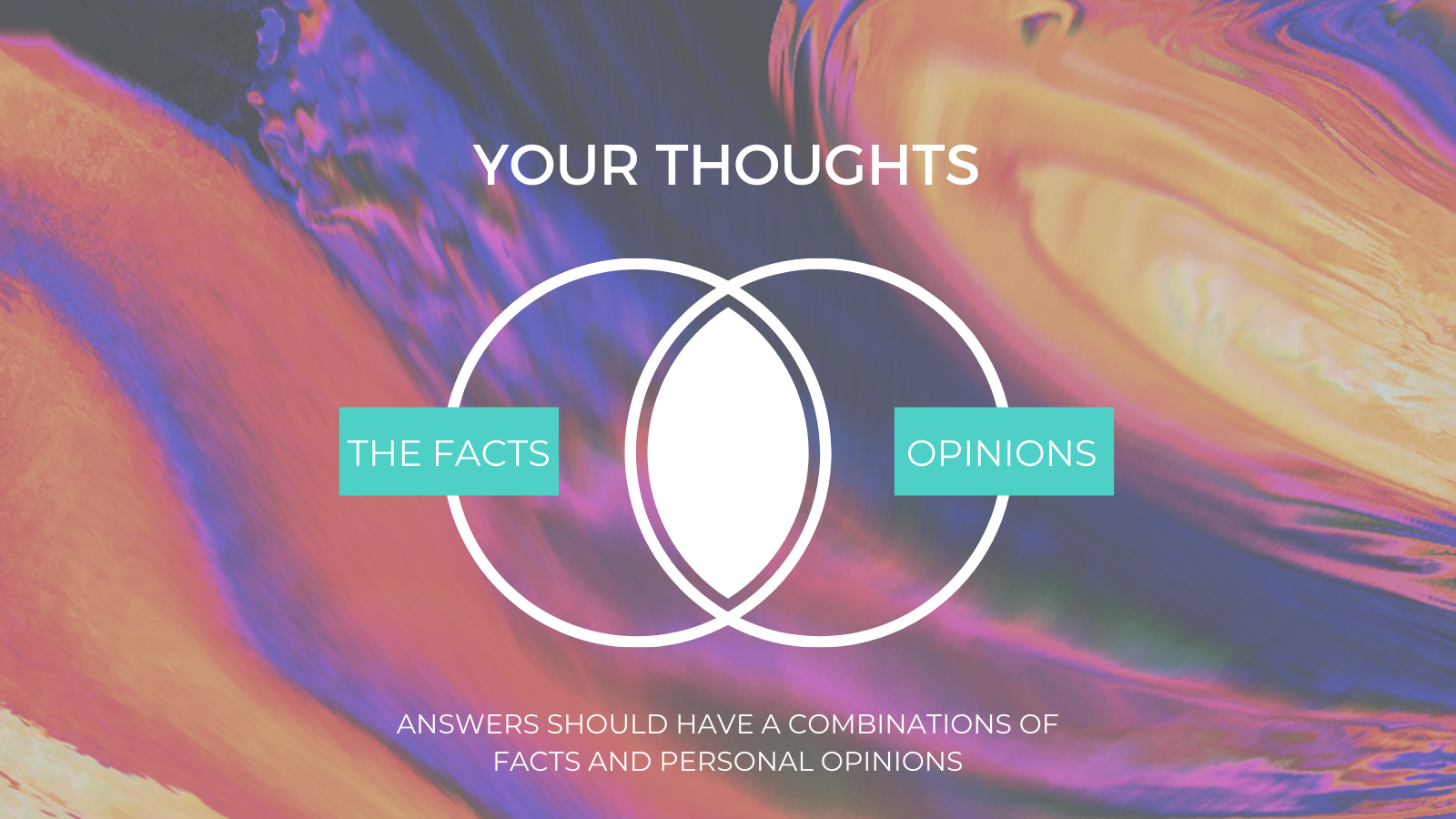
Unlike traditional interview responses, the IDEA! framework excels in blending fact-based information with your personal opinions and sentiments. This approach ensures your answers stand out, showcasing a well-rounded understanding and personal insight.
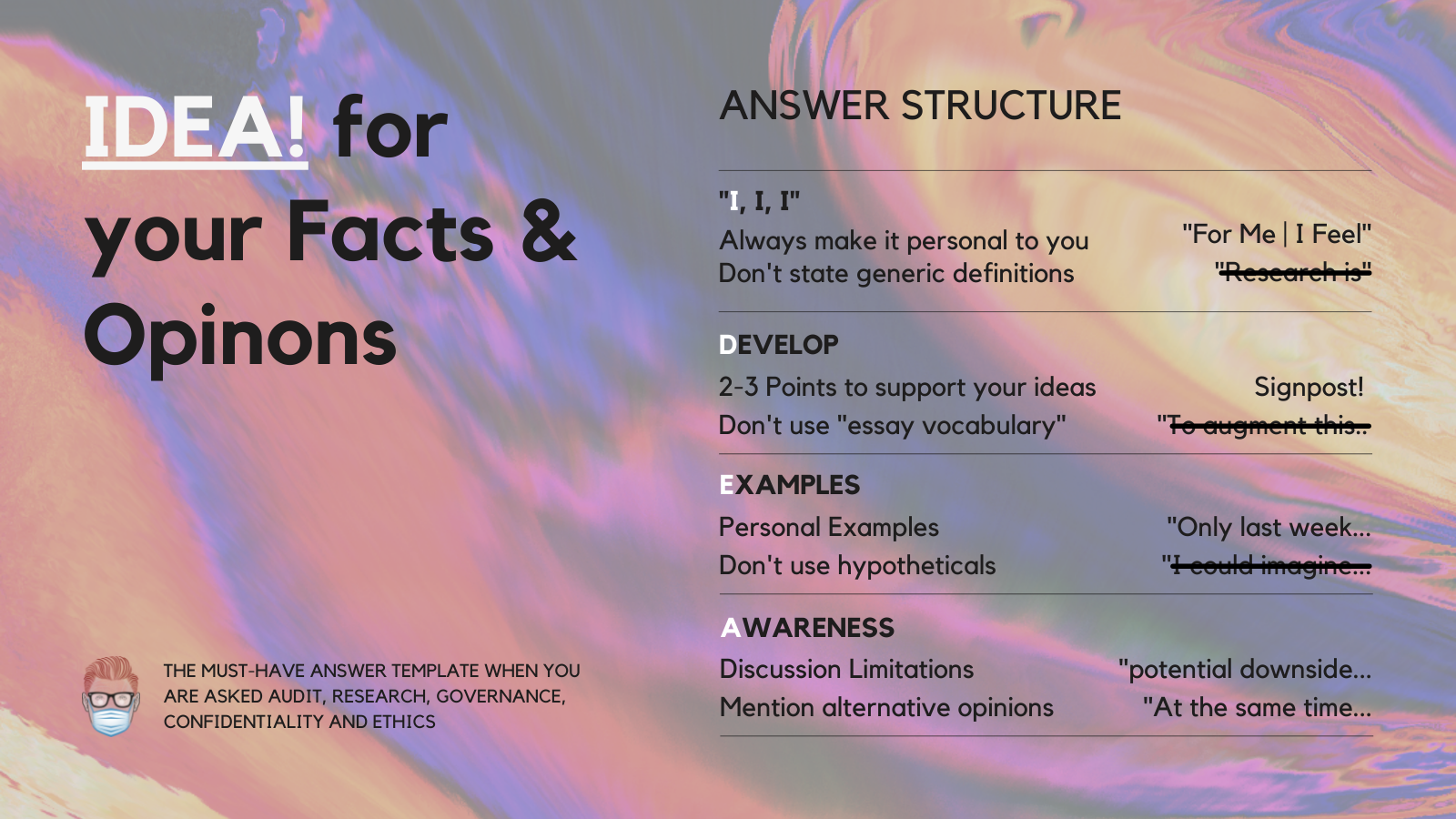
Pay attention to the cues in interview questions. It’s essential to grasp what interviewers are seeking – a nuanced blend of factual knowledge and personal perspective. The IDEA! framework helps you strike this balance, ensuring your answers are both informative and reflective of your individual experiences and viewpoints.
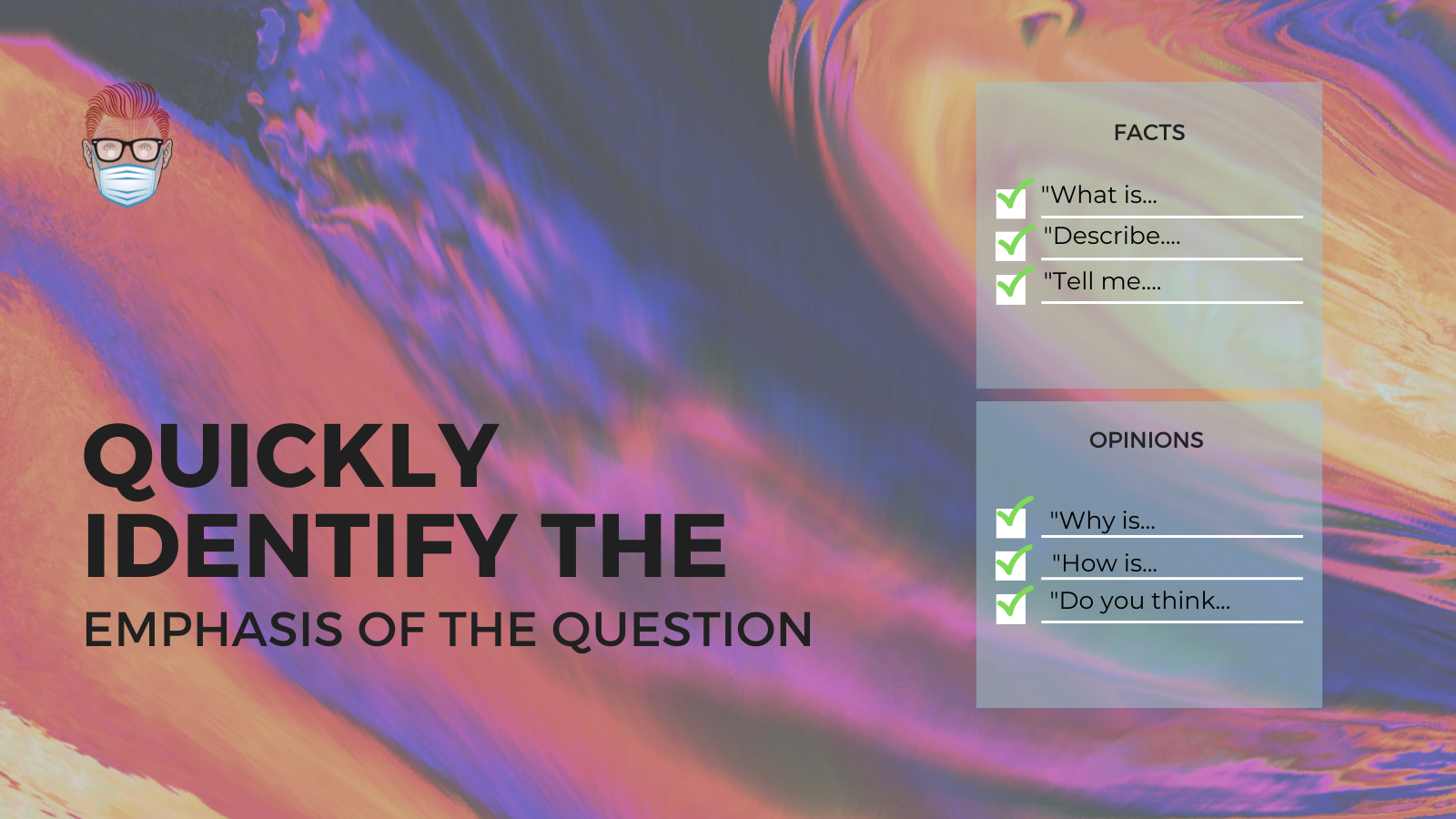
These leading sentences at the beginning of the question are a big clue for you. They should make you realize what the emphasis of the question is. This is further explained in the infographic below.
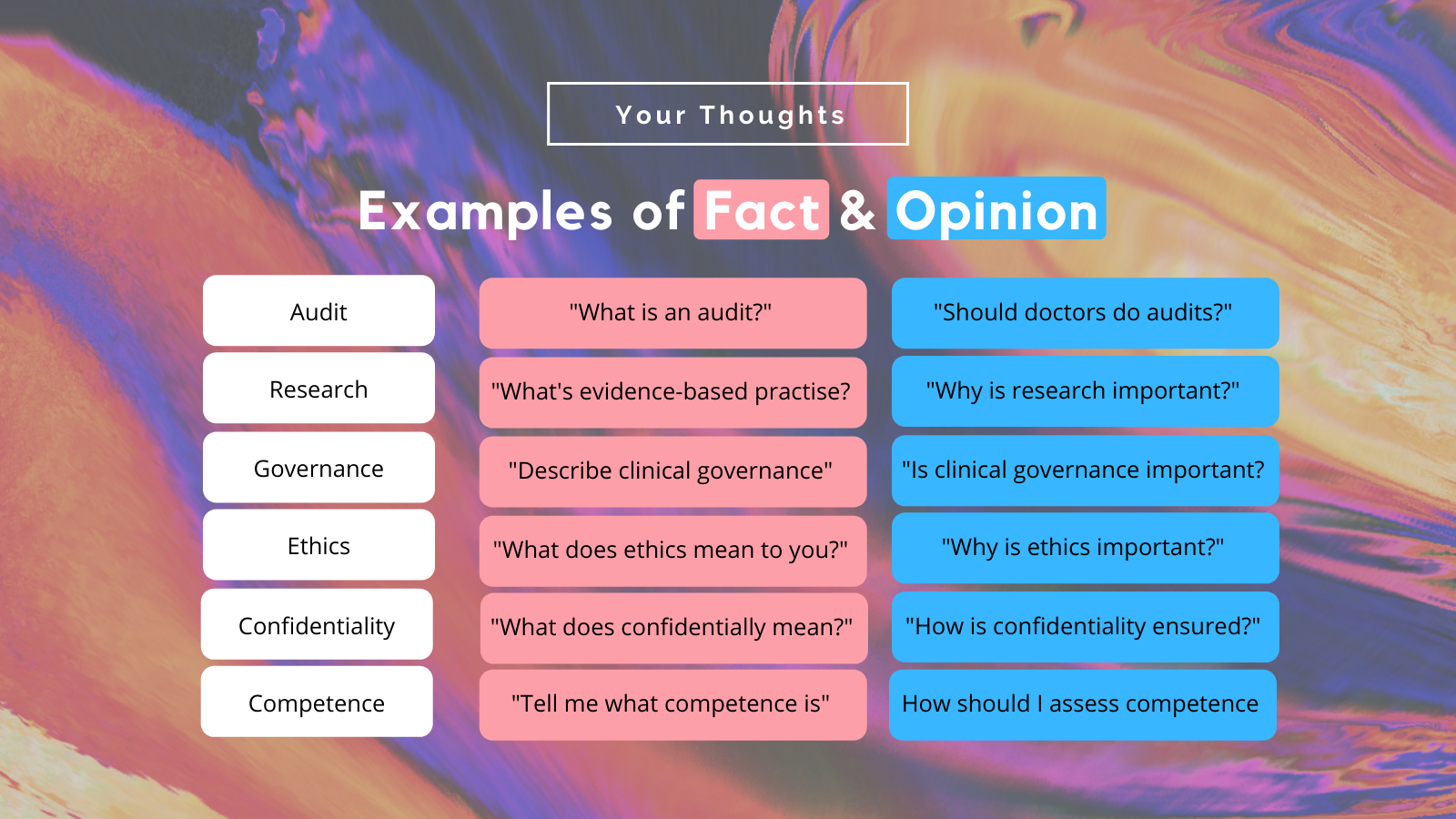
Hopefully, now you understand how important is to understand what the interviewer is looking for you. It's never 100% fact or 100% opinion, it's a delicate balance between the two. Here is an example below.
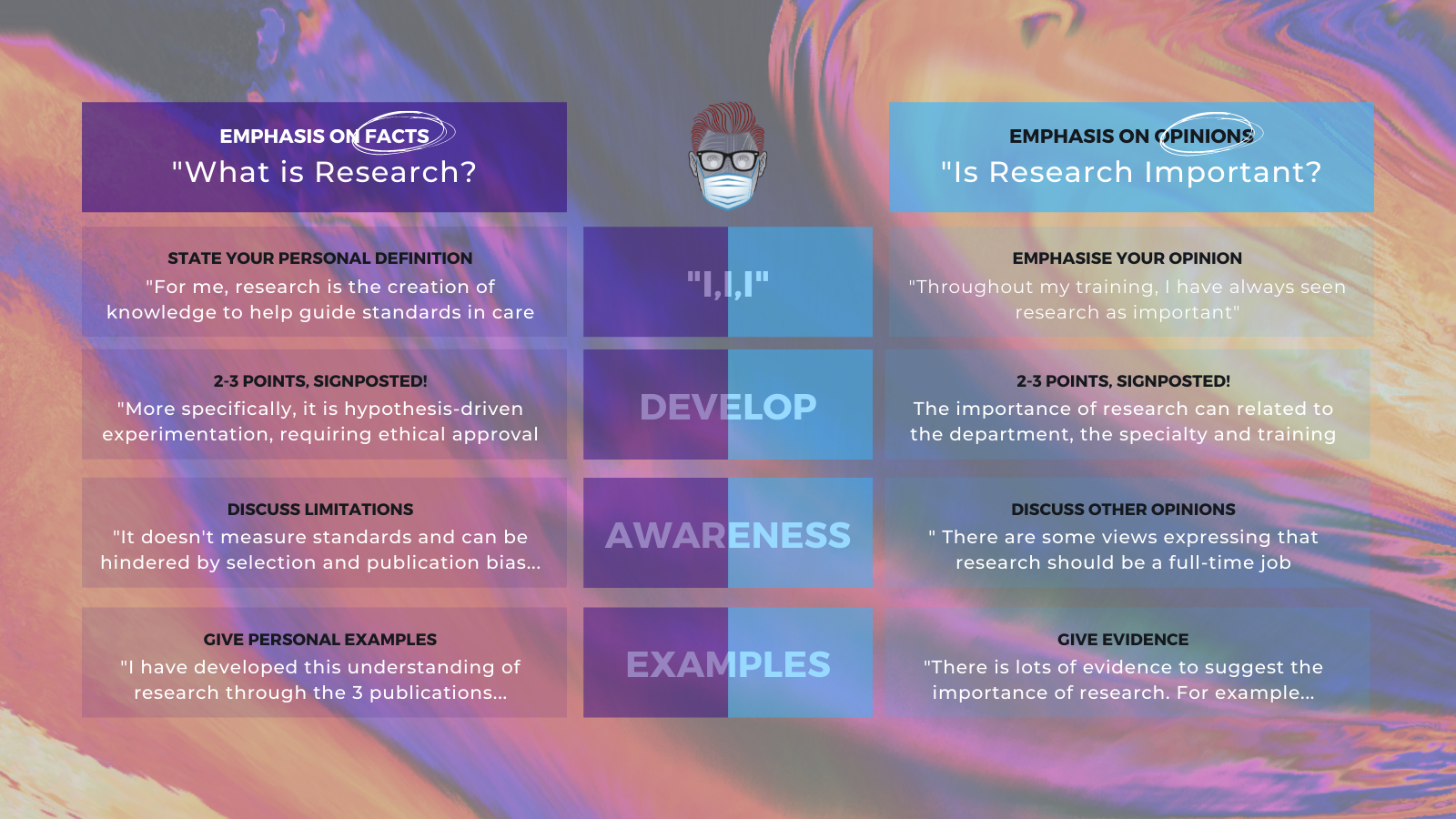
I
Key Point
Incorporate your personal experiences or perspectives into your response, making it unique to you.
Begin by connecting your personal journey or insights to the question. Choose experiences that highlight key competencies in plastic surgery or ethical considerations that are relevant to the field.
- Good Candidate: "In my clinical practice, I encountered a situation where a patient's religious beliefs conflicted with the recommended treatment. Navigating this required sensitive communication and respect for the patient's perspective, which taught me the importance of cultural competence in patient care"
- Bad Candidate: "Dealing with patients of different backgrounds can be challenging."
The good example demonstrates a specific, complex scenario where personal experience with cultural sensitivity is highlighted. It shows depth in understanding patient care complexities. The bad example is too vague and misses the opportunity to demonstrate how personal experiences influence professional practice.
Relate the topic to your own experiences or viewpoints to make your answer stand out. Avoid generic statements that don't reflect your personal journey or insights.
Develop
Key Point
Build upon your initial personal insights with thoughtful, well-articulated statements.
When incorporating personal experiences, structure your story to have a clear beginning, middle, and end. Start by setting the scene (beginning), describe the actions you took or the challenge you faced (middle), and conclude with the outcome or what you learned (end).
This approach helps in creating an engaging narrative that resonates with the interviewers. Use a storytelling approach to delve into the 'why' and 'how' aspects. This helps in developing a compelling narrative that reflects both personal views and a broader understanding of the field
For exmample:
- Beginning: "During my rotation in reconstructive surgery, I encountered a patient with a rare condition..."
- Middle: "I collaborated closely with my team to devise a tailored treatment plan, navigating through various challenges..."
- End: "This experience not only led to a successful patient outcome but also taught me the importance of teamwork and innovative thinking in plastic surgery."
Here are some examples used by former candidates:
- Good Candidate: "This experience led me to research more about cultural sensitivity in healthcare. I learned that effective communication goes beyond language barriers; it's about understanding and respecting diverse belief systems, which can significantly impact patient outcomes."
- Bad Candidate: "Cultural issues are just one part of patient care."
The good example effectively develops the initial insight into a broader understanding of cultural sensitivity, showing a deep dive into the topic. In contrast, the bad example glosses over the complexity of the issue without offering any insightful development of the idea.
Examples
Key Point
Choose and articulate examples that effectively support your points and demonstrate your understanding of the field.
Select examples that not only illustrate your point but also demonstrate your grasp of complex issues like ethical decision-making or patient-centered care.
- Good Candidate: "For example, in a case where a patient refused blood transfusion due to religious reasons, I worked with the team to explore alternative treatment methods, demonstrating respect for patient autonomy while ensuring effective care."
- Bad Candidate: "You sometimes have to respect patient wishes."
The good example provides a specific, relevant instance that demonstrates ethical decision-making and patient-centered care. The bad example fails to provide a concrete scenario, making the response less impactful and insightful.
Awareness
Key Point
Acknowledge the complexity of the topic and show awareness of various perspectives.
Recognize different viewpoints on the topic, demonstrating your ability to think critically and consider multiple aspects of an issue.
- Good Candidate: "While I believe in respecting patient autonomy, I also recognize scenarios where this might conflict with medical necessity, such as in emergency situations where the patient is unable to communicate their wishes."
- Bad Candidate: "Patient autonomy should always be respected."
The good example acknowledges the complexity of respecting patient autonomy, especially in critical situations, showing a nuanced understanding of the topic. The bad example presents a one-dimensional view, lacking the depth required for a comprehensive understanding of the issue.


